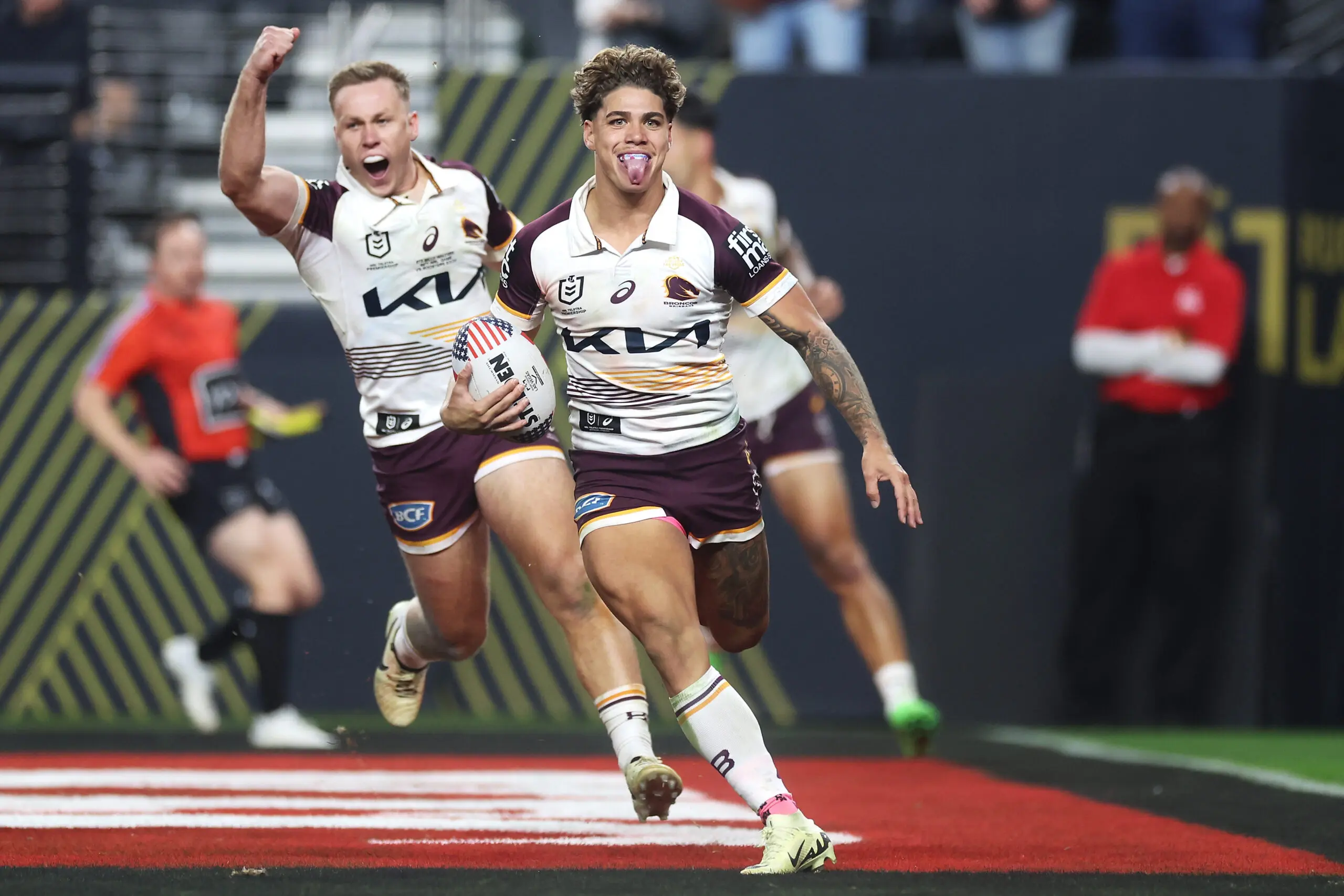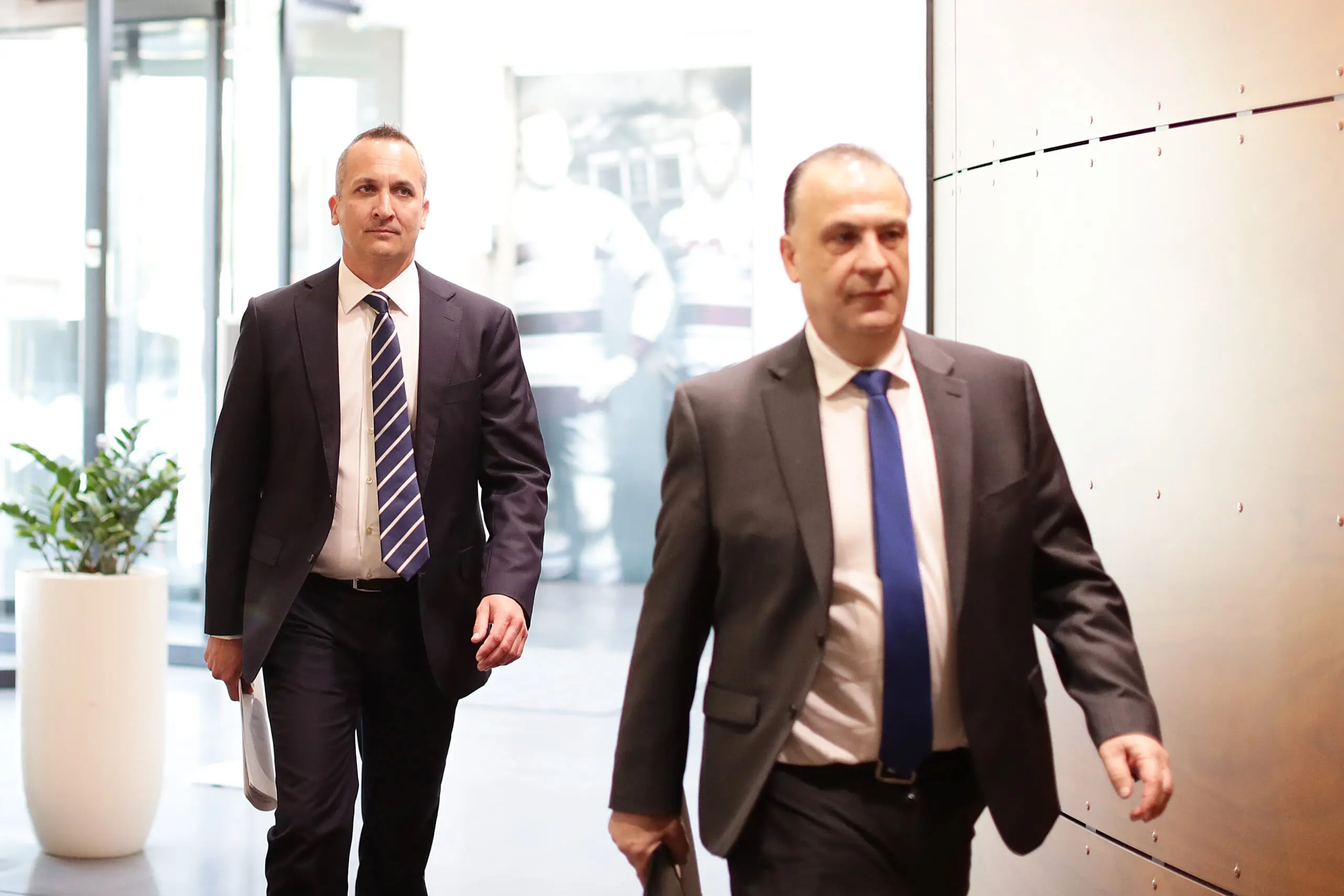There is little doubt that the fallout from the historic double-header to launch the NRL season in Las Vegas will leave some in rugby league circles a little on the disappointed side.
While the event went off (almost) without a hitch (it would have if not for the dramatic allegation of an on-field racial slur) and the crowd of 40,000 was indeed a win after revelations the NRL had only sold around 20,000 tickets earlier this year, other elements which have emerged in the last 24 hours will not leave Australian Rugby League Commission chairman Peter V'Landys and NRL CEO Andrew Abdo jumping for joy.
The NRL's play for a role in the North American sporting landscape is all about the mighty dollar. You'd probabaly know that even if you had been hiding out under a rock since the original announcement.
Betting dollars, and TV ratings. TV ratings and betting dollars. Any which way you spin the Las Vegas play, that is what it all bubbles down to.
And the results from instalment one, where the Manly Sea Eagles beat the South Sydney Rabbitohs, and the Sydney Roosters knocked over last year's grand finalists the Brisbane Broncos, weren't exactly excellent.
Despite all sorts of records being broken on the Australian TV landscape (which is remarkable given the Sunday afternoon timeslot back home), the peak of the double-header was 79,000 viewers in the USA on Fox Sports which came shortly before halftime of the first clash.
The Rabbitohs and Sea Eagles game managed 61,000 viewers, while the Broncos and Roosters attracted 44,000. The issue there is that 162,000 viewers were watching a college basketball game prior to the NRL on the same channel which went to overtime and delayed the start of the rugby league broadcast.
100,000 almost immediately switched off at the end of that instead of hanging around for the NRL.
The NRL weren't helped by timezones of course, with the need for a balance to be struck between Las Vegas and Australia which in turn meant games kicked off quite late on the east coast of the country.
But those numbers aren't a complete disaster for the first run in a country where the sporting landscape is always going to be difficult to crack - Americans are quite content with their offering of basketball, gridiron, ice hockey and baseball. The length of three of those seasons means there is always something on locally.
NRL CEO Andrew Abdo pointed out those numbers actually rivalled some Major League Soccer games in the USA - it's a low bar, but it's certainly something.
The other key metric was betting markets in the USA.
Sports betting has long been illegal in the States, but those laws are on the change, and the NRL take a cut of all bets made as they do in Australia.
The Sydney Morning Herald are reporting there were no noticeable trends to suggest an uplift in Americans betting on the NRL despite the games being played in the entertainment capital of the country, and potentially the world.
That data isn't official, but it's not news which is likely to bring much positivity to NRL HQ.
Despite that, it was never going to be a single-season play to gain instant results in a country where the sports landscape is so set in stone it's not funny.
Instead, it's the long game for the NRL.
There is a reason V'Landys and Abdo have been so clear about wanting to go back to the glitter strip for five years, and it's not because they enjoy flushing money down the toilet.
It's because it will take at least that long to get Americans watching the sport. Even five years won't totally change the outcome, but word of mouth is a powerful thing, and there is little doubt that, judging by social media at least, some Americans did enjoy their first outing at a rugby league game.
The conversions of those new fans signing up for Watch NRL (the global service which broadcasts NRL games) will be the most important metric to monitor over the next 12 months, and will be again following the Vegas games next year.
Financially, that and betting will be the two biggest windfalls for the NRL.
All told, it's worth the risk given the potential financial uptick the sport could gain out of the US market if this works.
It's an enormous if of course, but to suggest the opening instalment of the Vegas games were anything other than at the very least an on-par-with-expectations result would be blatantly wrong.
The naysayers will knock it, but growth year on year is the biggest part of this experiment moving forward.
Not what happened in Year 1.








